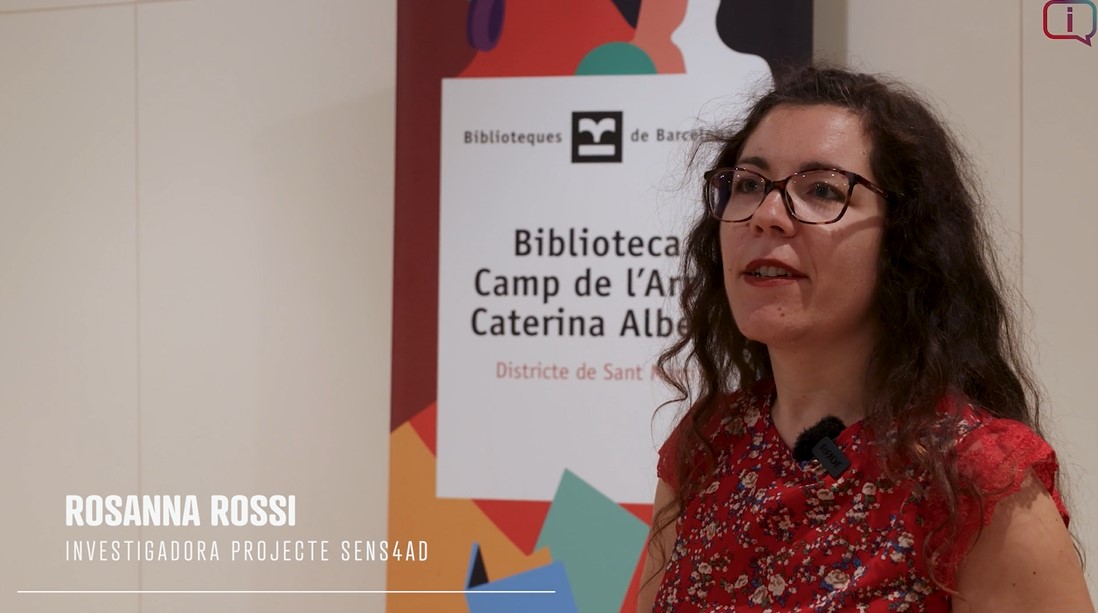The researcher Rosanna Rossi presents advances in the early diagnosis of Alzheimer¿s disease
The SENS4AD project focuses on developing a biosensor for the early diagnosis of Alzheimer’s disease and the stratification of patient risk.

This autumn, the libraries of Barcelona are talking about science and the future. As part of the series “Science, City and Young Research”, Rosanna Rossi, a researcher at the Institute of Biotechnology and Biomedicine of the Universitat Autònoma de Barcelona (UAB), presented the progress of the SENS4AD project — an initiative that seeks new ways to detect Alzheimer’s disease in its earliest stages. This project has been funded by Ajuntament de Barcelona.
“The project involves the development of a biosensor for the early diagnosis of Alzheimer’s disease and patient risk stratification,” explained Rossi. The goal is to create a rapid, accessible, and non-invasive test based on biomarkers present in plasma. “We want to develop a simple test that can be applied on a large scale,” she added.
During her talk, held at the Camp de l’Arpa – Caterina Albert Library, the researcher shared the latest advances of her team, which is part of the research group Biosensing and Bioanalysis at the IBB, led by Professor Isabel Pividori. The SENS4AD project is working on a system based on plasma biomarkers for the rapid detection of Alzheimer’s, combining nanotechnology and electrochemical biosensors with biomedical applications.
The study uses samples provided by the ACE Alzheimer Center Barcelona, a leading institution in dementia research and diagnosis. A key element of the project is the use of the portable reader developed by Bioeclosion, which enables point-of-care analyses and represents an important step toward more decentralized healthcare. This compact device provides accurate results in real time, making it a promising tool for early and accessible Alzheimer’s diagnosis.
Rosanna Rossi highlighted the importance of collaboration between academic research, clinical partners, and technology developers to bring these diagnostic innovations into real-world practice. Her presentation underscored the potential of combining biosensing platforms with portable technology to transform how neurodegenerative diseases are detected and monitored.
You can watch the video featuring excerpts from the talk and an interview with the researcher.
Credits: Camp de l’Arpa – Caterina Albert Library
Director/Editor: Mark Infantes
Producer/Writer: Javier Mojica
Distributed by: INEDITAGENCIA.CAT
Production: MARLEX MEDIA GROUP
